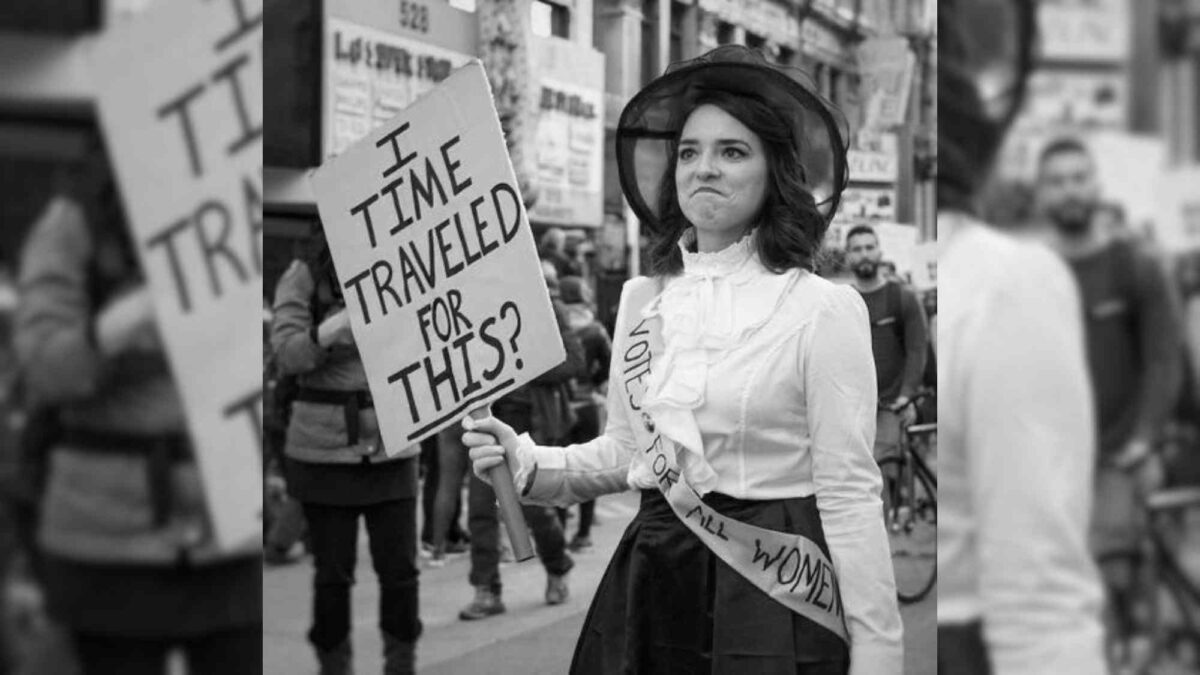There is much to be said about reclaiming harmful stereotypes about one’s own identity group, and the dangers of it are not paid enough heed. At what point does reclaiming harmful stereotypes become reinforcing those same harmful stereotypes? The bimbo-feminist movement and one of its spearheads, TikTok creator ‘nikitadumptruck’ is a great example of reclamation going too far.
Bimbo-feminism can be defined as reclaiming through embracing of patriarchal feminine stereo types — namely, being attractive, airheaded, and innocent. Nikita has amassed nearly 750,000 followers on TikTok through making videos about explaining news “for the girls.” She is often seen sporting a hyper-feminine, all-pink outfit and talking in an airy, friendly, and high-pitched voice. Nikita has “girl-splained” topics like BRICS, WGA and SAG strikes, and even the Israel-Palestine conflict.
She has received many comments criticising her for dumbing-down content while writing she is speaking “for the girls.” Nikita has pinned a TikTok of her responding to one of these comments in which she explains, “I write ‘for the girls’ on my explainer videos because I talk in them how I talk to my friends. When I’m talking to my friends I’m not pretentious or I’m not trying to sound smarter than I actually am, I’m just talking.” She then proceeds to say that the person who left the comment is the one conflating “for the girls” with dumbing it down, not her. And I could not disagree more.
It has to be noted that just because something feels empowering does not mean that it is, and just because you are embracing offensive stereotypes about women does not mean what you are doing is feminist. By marketing explainer videos to ‘the girls’ that dumb down content, often explaining geopolitical phenomena through metaphors about mean girls, gossip, and birthday parties, she is making the assumption that that is how girls communicate. To say her content is for the girls is to say girls communicate in airy, high-pitched voices, and are incapable of understanding geo-political phenomena through news articles and television like most people. That we need to have it explained through a hyper-girly phenomena.
A crucial point that is often missed when a woman embraces bimbo-feminism, is that the stereotypes they are ‘reclaiming’ are not based in reality. The stereotypes of women being stupid, unable to participate in politics the way men do, and requiring the severe watering-down of serious topics so that it becomes ‘digestible’ for us, are offensive stereotypes enforced upon women by men. They are patriarchal stereotypes that have kept — and in many instances, still work to keep — women in a subordinate position to men.
I return to my earlier point, just because something is empowering does not mean that it is. In A Vindication of the Rights of Woman (1729), Mary Wollstonecraft wrote, “My own sex, I hope, will excuse me, if I treat them like rational creatures, instead of flattering their fascinating graces, and viewing them as if they were in a state of perpetual childhood, unable to stand alone.” In her book she highlights that patriarchal assumptions made about women being less intelligent, curious, determined, and rational than men have created an infantilised view of women. She emphasises that we must stop treating women under a rubric enforced upon us by men for the very purpose of keeping us subordinate to them. What does it say about women when we reinforce those stereotypes ourselves?
Women have fought long and hard for the mere right to be seen as equal to men, and more specifically, to be seen as intellectually equal to men. And in many places in the world, we still are not seen as such.Bimbo-feminists embody — with pride — a hyper-feminine, hyper-sexualised, and anti-intellectual strand of feminism. It is not useful to debate, “why can’t women just be feminine? Why can’t we just act like bimbos? Feminism is about women supporting women right?”, wrong. Feminism is about liberating women from oppressive structures and narratives that have historically subjugated us. It is not about blindly supporting whatever women do, just because they are women. There is no such thing as ‘just’ being feminine, and ‘just’ acting like a bimbo. Our decisions do not exist in a vacuum, they are influenced by larger social structures — like the patriarchy — and have impacts on society.



